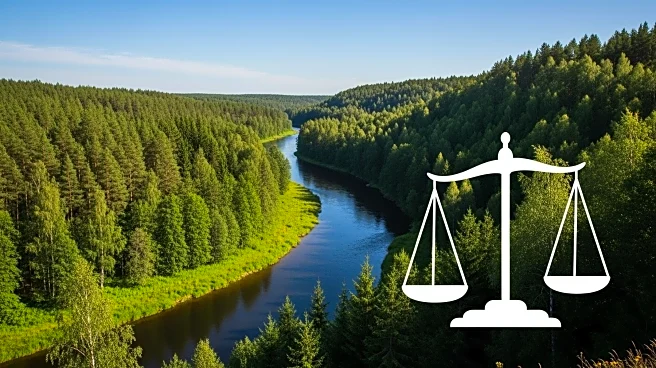What's Happening?
The concept of granting legal rights to nature, first proposed by law professor Christopher Stone in 1972, has gained traction worldwide. As of June 2023, 30 countries have implemented or proposed laws
recognizing the rights of nature. This movement aims to protect ecosystems by treating natural entities like rivers as living beings with legal personhood. Countries such as Ecuador, Bolivia, New Zealand, India, and Bangladesh have enacted laws granting rights to rivers, reflecting a growing recognition of the importance of environmental conservation.
Why It's Important?
Recognizing legal rights for nature represents a paradigm shift in environmental policy, emphasizing the intrinsic value of ecosystems. This approach can lead to stronger protections against pollution and encroachment, potentially reversing ecological degradation. By granting legal personhood to natural entities, countries can enforce environmental laws more effectively, promoting sustainable development and conservation efforts. This movement could inspire other nations to adopt similar measures, contributing to global efforts to combat climate change and preserve biodiversity.
What's Next?
As more countries consider adopting legal rights for nature, there may be increased international collaboration on environmental issues. Legal frameworks could evolve to address challenges in implementation and enforcement, ensuring that natural entities are adequately protected. The success of these initiatives may encourage further legislative action, potentially influencing global environmental policies and fostering a more sustainable future.
Beyond the Headlines
The recognition of nature's rights raises ethical questions about humanity's relationship with the environment. It challenges traditional views of nature as a resource to be exploited, promoting a more harmonious coexistence. This shift could lead to cultural changes in how societies value and interact with natural ecosystems.










